I often come across code like the following:
if ( items != null)
{
foreach(T item in items)
{
//...
}
}
Basically, the if condition ensures that foreach block will execute only if items is not null. I'm wondering if the if condition is really needed, or foreach will handle the case if items == null.
I mean, can I simply write
foreach(T item in items)
{
//...
}
without worrying about whether items is null or not? Is the if condition superfluous? Or this depends on the type of items or maybe on T as well?


